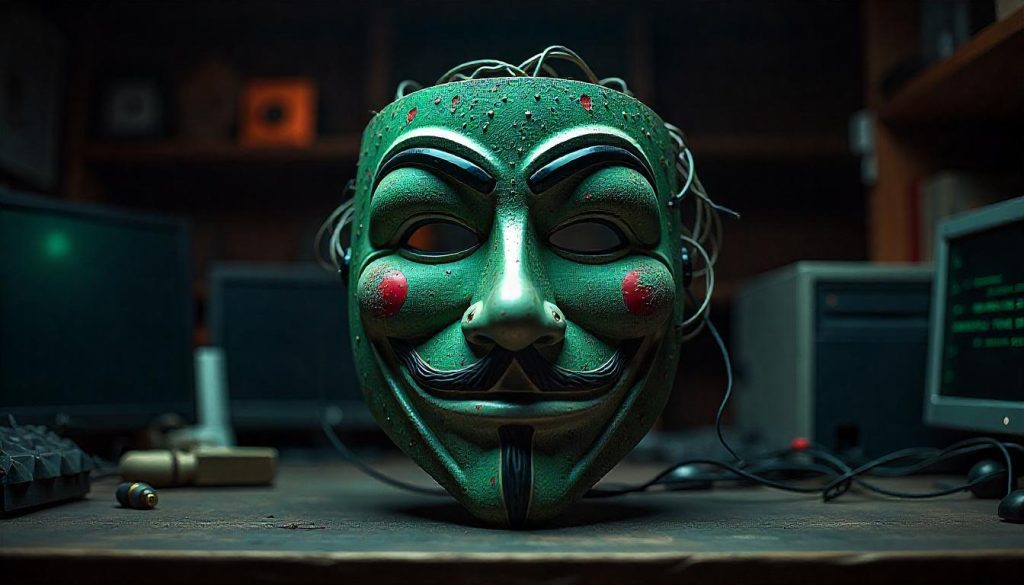Anonymous is one of the most well-known hacktivist groups in the world. Famous for its bold cyberattacks on governments, corporations, and institutions, the group is often seen as fearless, controversial, and unapologetic. With their well-known catchphrase—”We are Anonymous. We are Legion. We do not forgive. We do not forget. Expect us.”—many wonder: does Anonymous ever apologize? Let’s explore whether this mysterious collective ever admits to mistakes, feels remorse, or offers apologies for its actions.
Who or What Is Anonymous?
Before diving into their approach to apologies, it’s important to understand what Anonymous is. Unlike typical organizations, Anonymous has no leaders, no headquarters, and no official membership list. It’s a decentralized group of individuals connected through shared goals—mostly around digital freedom, anti-censorship, and exposing corruption.
The group first appeared on imageboards like 4chan in the early 2000s, where users started to coordinate online protests, pranks, and cyberattacks. Over time, Anonymous gained global attention by launching “operations” or “ops” targeting government websites, police departments, and major corporations.
Because there’s no central authority, anyone can act under the Anonymous name. That makes it hard to say with certainty whether “Anonymous” as a whole regrets anything.
Their Motto: No Forgiveness, No Forgetting
Anonymous often promotes a strong stance with their infamous slogan:
“We do not forgive. We do not forget. Expect us.”
This motto sends a clear message: they’re not here to make friends. Their actions are usually aimed at holding powerful institutions accountable—through hacking, leaking documents, or taking down websites. The tone is aggressive, defiant, and shows little room for sympathy or second thoughts.
So, from the outside, Anonymous appears to be a group that doesn’t apologize and rarely admits wrongdoing.
But is that always true?
Have They Ever Expressed Regret?
Despite their strong messaging, there have been a few instances where individuals or factions within Anonymous have expressed regret or made statements that resemble apologies.
1. The MIT Website Hack After Aaron Swartz’s Death (2013)
After the tragic death of Aaron Swartz, an internet freedom advocate, Anonymous attacked the website of the Massachusetts Institute of Technology (MIT). They blamed MIT for playing a role in the legal case that led to Swartz’s suicide.
Interestingly, in the message they posted on MIT’s site, the hackers acknowledged that the intrusion was temporary and stated they meant no harm to the university. While not a full apology, it was a rare sign of sensitivity from Anonymous. It showed they were capable of recognizing emotional impact and crossing boundaries.
2. Distancing from the PlayStation Network Hack (2011)
In 2011, Sony’s PlayStation Network was hacked, affecting millions of users. While Anonymous had previously targeted Sony for legal action against PlayStation hackers, the group later issued a statement denying involvement in the massive data breach. While this wasn’t an apology, it showed concern over being blamed for something they didn’t do. The statement said that Anonymous does not support stealing credit card data or harming innocent users, and if someone used the Anonymous name for that, they were acting alone.
3. Internal Disagreements and Conflicting Views
Since Anonymous is not a unified organization, different factions may feel differently about certain actions. Some individuals have come forward online to say they regretted specific operations, especially when the consequences were larger than expected. This includes leaks that harmed innocent people, or attacks that affected public services. These members sometimes issue public statements of regret, though they’re not “official” Anonymous apologies.
Why Apologies Are Rare
Even when regrets happen, formal apologies from Anonymous are almost non-existent. Here are a few reasons why:
● No Central Leadership
Anonymous has no one in charge, so there’s no single voice to speak for the whole group. That makes it hard to issue collective statements, especially apologies.
● Pride in Their Mission
Anonymous sees itself as fighting for truth and justice. Many members feel that their actions are necessary, even if they are illegal or controversial. From their point of view, apologizing might weaken the impact of their message.
● Fear of Legal Repercussions
Admitting fault or issuing an apology could be seen as an admission of guilt. Since many of their actions are considered cybercrimes, any form of public regret could expose individuals to legal danger.
The Gray Areas: Morality and Ethics in Hacktivism
Hacktivism—using hacking as a form of protest—sits in a moral gray area. While some see Anonymous as digital heroes or freedom fighters, others call them cyber terrorists. This split opinion makes it even more complicated when considering apologies. For example, if Anonymous takes down the website of a corrupt government, some will celebrate it, while others might see it as disruptive or harmful. So, when Anonymous does cause unintended harm, it’s possible that individual members may feel guilty, but they rarely say so publicly.
Conclusion: Do They Ever Say Sorry?
The short answer is: very rarely. Anonymous, as a collective, generally does not apologize. Their core philosophy promotes action without regret. However, there have been unique situations where:
-
They acknowledged the unintended consequences of their actions.
-
They denied involvement in operations that didn’t align with their values.
-
Individuals expressed remorse in limited online posts.
Because Anonymous has no leader, it’s difficult to say the group as a whole ever truly says “sorry.” Still, their past behavior shows they are not completely without conscience, and sometimes, even Anonymous has second thoughts.
